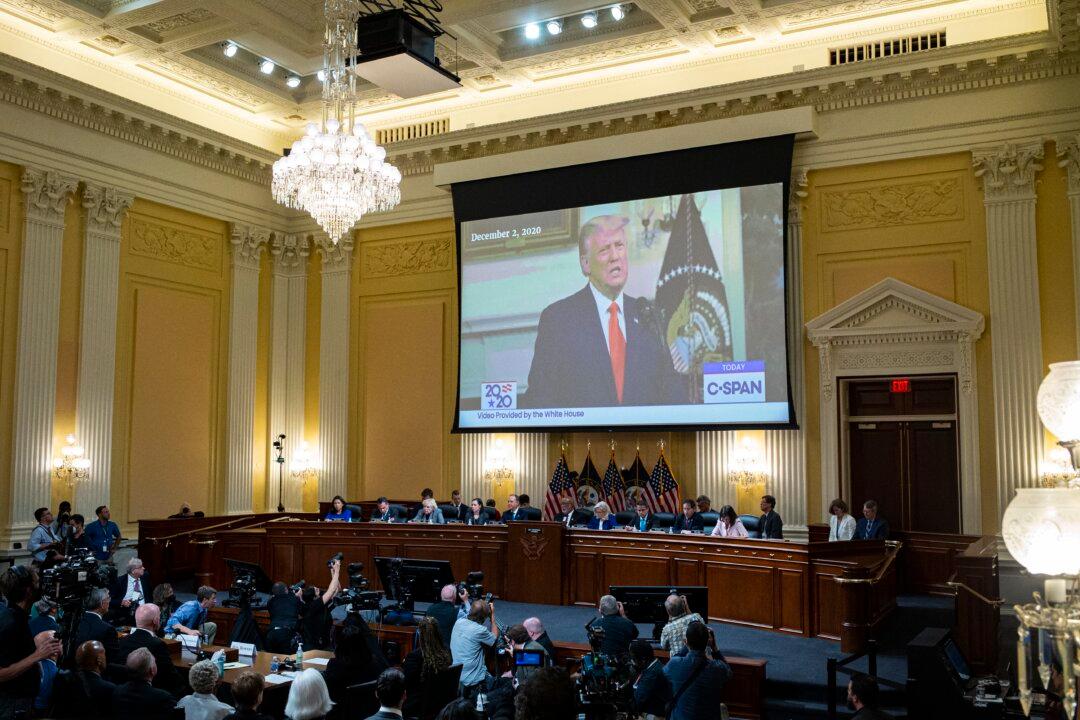The House Jan. 6 Committee on June 21 held its fourth day of public hearings, during which it argued that President Donald Trump had organized a pressure campaign against state legislatures and secretaries of state to get them to reject the results of elections in their states, which Trump said were rife with fraud.
Tuesday’s hearing comes after the committee, during its first three hearings, has sought to make a case that Trump led an organized behind-the-scenes effort to “overturn the 2020 election.”





